Fly-tipping: How are councils tackling it?
- Published
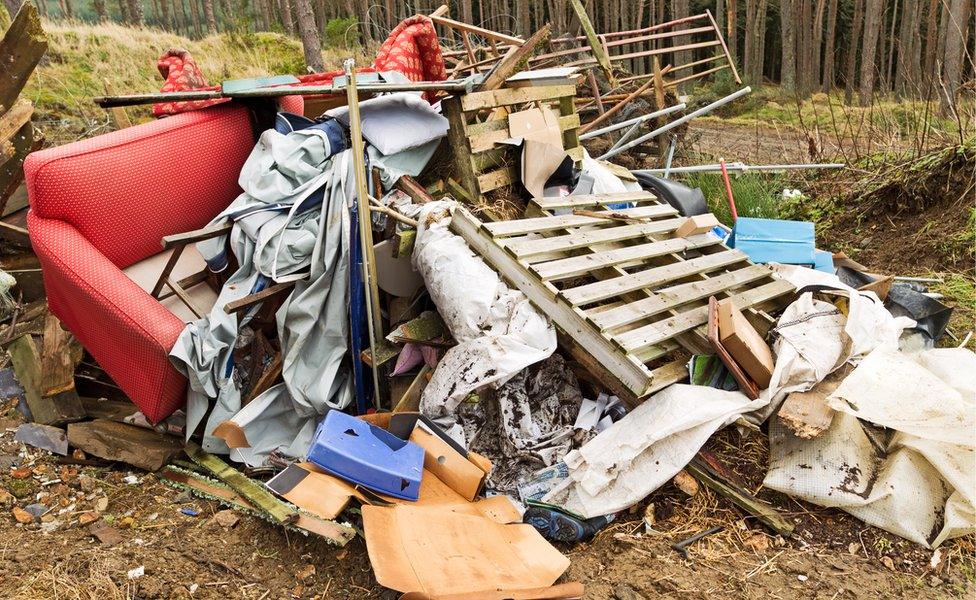
Readers of the BBC website wanted to know what solutions there were to fly-tipping
Fly-tipping figures have fallen in England for the first time in five years but it's still happening across the country on average 2,700 times a day. Readers asked what councils are doing to tackle it.
Councils recorded 997,553 instances of illegal dumping during 2017-18, which is a slight decrease on 1,011,000 in 2016-17 and the first time the figure has dropped since 2013.
The BBC's Local Democracy Reporting Service has been taking a look at the different tactics English councils are employing to combat fly-tipping.

Detective work

Bristol City Council enforcement officer Jack Rex has been acting as a fly-tipping detective
"Usually fly-tipped rubbish has some sort of revealing information - such as a delivery address. Is this information often used?" asked Lorna Morris, 46, from Liverpool.
In London, Bromley Council has so far spent £15,000 on private investigators, external to track down fly-tippers - but none of their covert operations have resulted in a prosecution.
In figures obtained through a Freedom of Information request, it has emerged three "covert fly-tipping operations" have been carried out between 2015 and 2018 at £4,800 a go.
Bristol City Council is piloting a scheme where enforcement officers act as "fly-tipping detectives", external, rifling through rubbish to find evidence of the perpetrator.
In the first week of the checks 31 pieces of evidence were found.

Fines
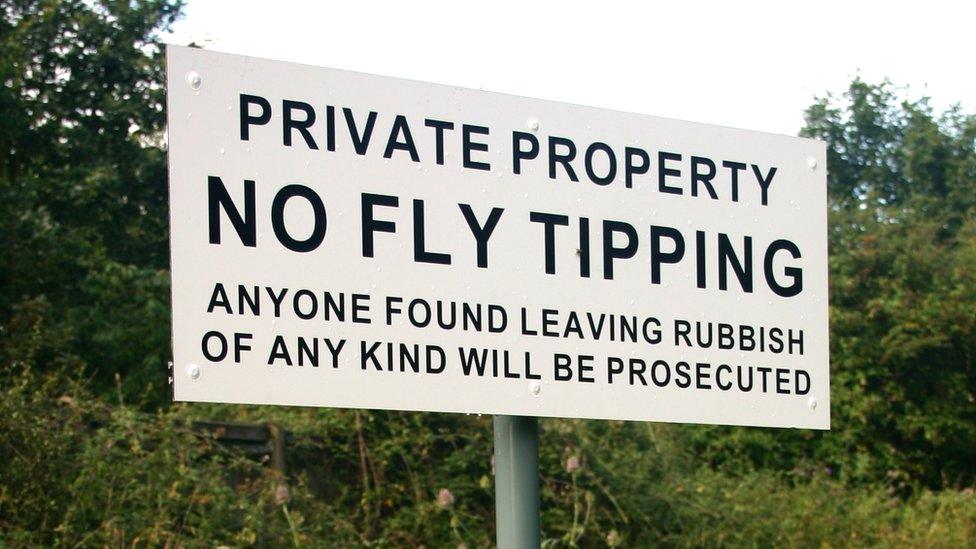
Councils have had the power to issue on the spot fines of up to £400 for fly-tipping since 2016
"How many fines get issued?" asked Ricardo Lacombe.
The number of fixed penalty notices issued across England has increased, up 20% to 69,000 from 2016/17., external
Councils have had the power to issue on the spot fines of up to £400 for fly-tipping since 2016.
The government plans to expand this to cover people who pay someone else to get rid of their rubbish for them by the end of the year.


Free skips
Allow X content?
This article contains content provided by X. We ask for your permission before anything is loaded, as they may be using cookies and other technologies. You may want to read X’s cookie policy, external and privacy policy, external before accepting. To view this content choose ‘accept and continue’.
"Why do councils continue to charge residents and businesses for bulky waste disposal? If they stopped charging there'd be no reason to fly-tip," asked John Fox, 58, from New Milton in Hampshire.
Wendy Barrington asked: "Would it not be more cost effective to make disposing of items easier and cheaper than cleaning up the mess and damage to the environment?"
Community skips, external are being trialled in the London Borough of Brent.
Worcester City Council is looking into bringing back a similar scheme that was temporarily suspended, external over health and safety concerns.
However in Hertsmere, Sussex, councillors say community skips would generate more waste, external than the authority could cope with.
Councils in North East Lincolnshire, external and Newham, external are planning to offer bulky waste collections next year to encourage residents not to dump furniture and other rubbish on the streets.
Walsall Council is planning to put a free skip in each of its 20 wards every Saturday. The area recorded 4,367 incidents of fly-tipping in 2017-18, a slight drop on the year before.

Caught in the act
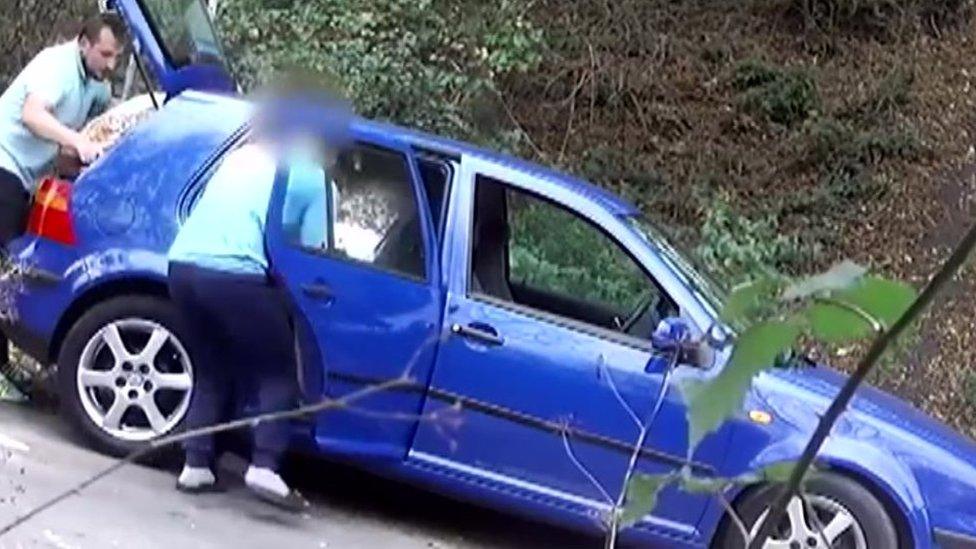
Barnsley Council has begun using hidden camera footage to name and shame fly-tippers online
"In Harrow fly-tipping happens daily in my area. The council needs to have people sitting in cars at night in the known areas to catch these people," said a reader who did not want to be named.
"Many have a phone with camera," said John Kay, 69, from Gloucestershire. "Make the fine a minimum £400 with half going to any person providing evidence leading to a successful prosecution."
Barking and Dagenham Council has been exposing fly tippers by uploading CCTV of them onto YouTube., external
The series has received more than 10,000 views since its launch in August and had led to £1,650 of fines being issued, a council spokesman said.
Barnsley Metropolitan Borough Council said since sharing CCTV footage of suspected fly tippers in action, external, it had identified a number of people and issued fixed penalty notices for the illegal activity.
- Published14 December 2017
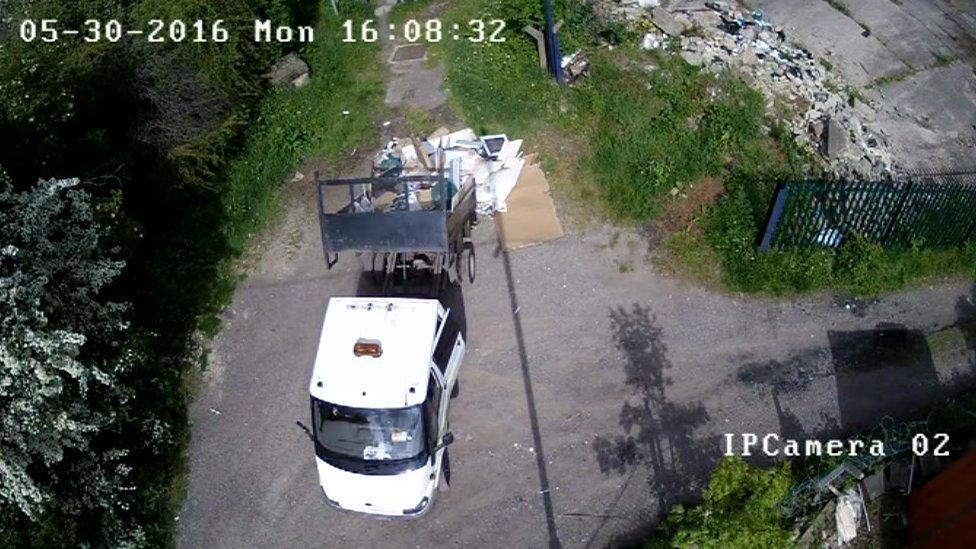
- Published15 November 2018
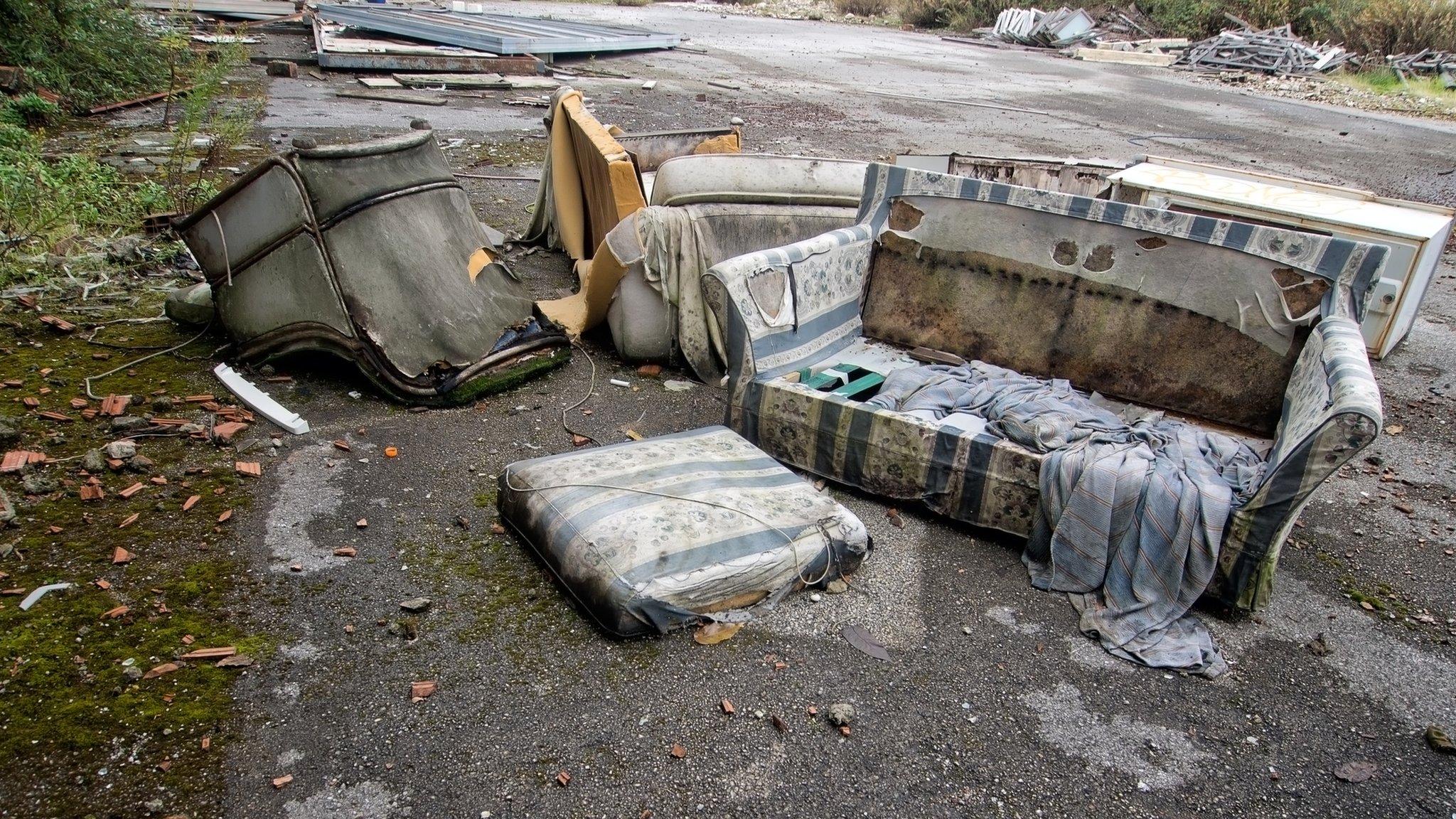
- Published20 October 2017
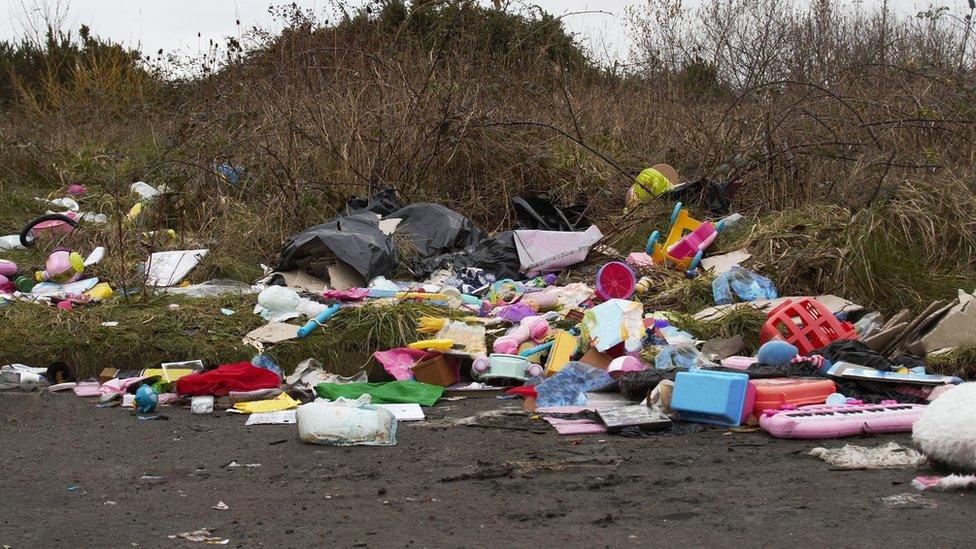
- Published30 August 2018
